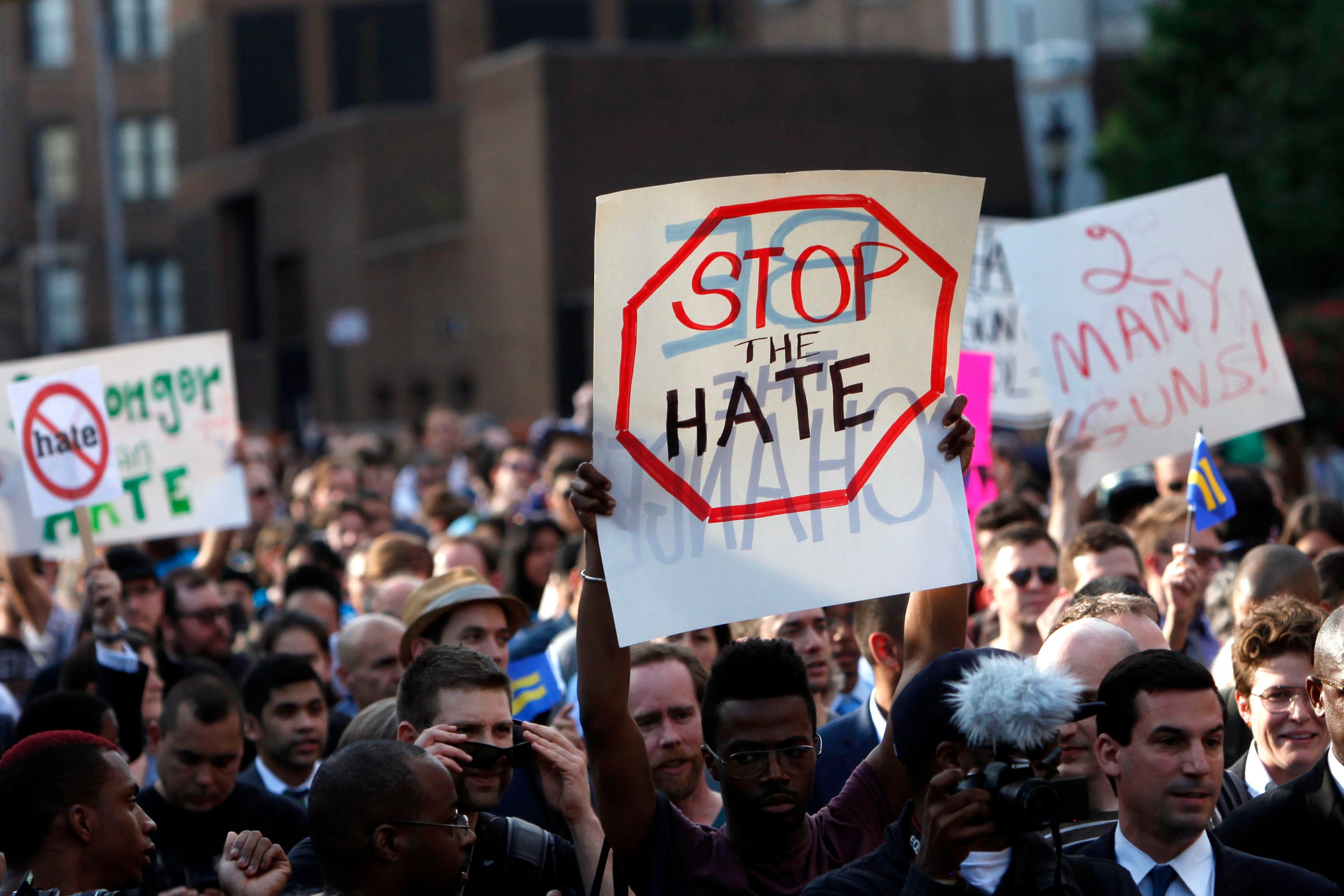An attorney with Montgomery's Southern Poverty Law Center (SPLC) assessed an international organization in Poland last week, insisting that governments around the world should crack down on what it deems to be "hateful ideologies."
SPLC senior policy counsel Lisa Borden warned that "hate and extremism continue to be on the rise" despite a supposed decline in hate groups. This is due, according to Borden, to hate groups operating "openly in the mainstream, reducing the need to join an organized group."
Of course, conservatives have long complained about the SPLC's method for identifying "hate groups." Critics have pointed to the organization's "hate map," which includes several Christian, conservative and libertarian organizations alongside Neo-Nazi and white nationalist groups.
The SPLC is currently involved in a lawsuit with the Georgia-based Dustan Inman Society (DIS), a nonprofit that advocates for stronger immigration policies on the U.S.-Mexico border. The SPLC labels DIS an "anti-immigrant hate group" on its website. DIS founder D.A. King has accused the organization of defamation.
Borden said the SPLC is partnering with the American University's Polarization and Extremism Research and Innovation Lab (PERIL) to "develop and disseminate tools to inoculate youth against radicalization and build community resilience through early prevention and non-carceral solutions."
Borden delivered her speech on Thursday at the Human Dimension Conference of the Organization for Security and Co-operation in Europe (OSCE) Office for Democratic Institutions and Human Rights.
There, she also encouraged governments to fund and support "inclusive education," which she insisted ran contrary to new approaches to education in some red states in America. Around the United States, Republican lawmakers have been working on legislation to prevent ideological tenets like Critical Race Theory (CRT) and gender theory from being preached in the classroom.
"We believe concealing the truth about history makes youth more susceptible to misinformation and fails to equip them with critical thinking skills and education to navigate a new age where disinformation and manipulation are spread on the internet," she said.
This isn't the first time the SPLC has lashed out against conservative education policies.
In its annual report earlier this year, the SPLC attacked Moms For Liberty, a grassroots coalition of conservative women based in Florida that advocates for protecting children from sexualized material, CRT and ideological indoctrination in public schools, by labeling them as an "antigovernment" extremist group.
Several other parental rights organizations, such as Parents' Rights in Education and Parents Defending Education, also made the list, alongside over 700 other alleged antigovernment extremist groups and 523 supposed "hate groups."
But this isn't the only way Borden suggested governments can police thought.
"Governments must hold tech platforms accountable for their part in spreading extremism," she said. "Much of Europe is at least somewhat ahead of the U.S. in this. For a relatively brief period following the January 6 insurrection, some mainstream social media platforms banned Donald Trump and others associated with the violence, but that trend has been reversed."
Borden suggested that "alt-tech" websites provide right-wing extremists with "opportunities to raise funds, organize, and spread disinformation and propaganda" and that these sites are reachable through mainstream social media platforms.
"Online accounts with enormous followings spread hateful and inflammatory rhetoric designed to incite their followers to action," she said. "Tech platforms are not innocent bystanders when third parties post hateful and violent material online. Their algorithms help to disseminate it and to ensure that the most susceptible people receive it. This must change."
The SPLC has a long history of working with big tech organizations like Google, Facebook, Twitter and Amazon and has even forged a relationship with federal law enforcement agencies like the FBI.
Earlier this year, a controversial FBI memo cited the SPLC hate group list and suggested the federal agency should monitor traditionalist Catholics through "the development of sources with access," including in "places of worship." The FBI later rescinded the memo following backlash from concerned Christians.
The FBI previously admitted to having "forged partnerships" with the SPLC and other left-wing organizations "to establish rapport, share information, address concerns and cooperate in solving problems."
SPLC Intelligence Project director Susan Corke, the author of the study condemning Moms for Liberty, even visited the White House on Jan. 6, 2023, to meet with National Security Council counterterrorism director John Picarelli.
To connect with the author of this story or to comment, email will.blakely@1819news.com or find him on Twitter and Facebook.
Don't miss out! Subscribe to our newsletter and get our top stories every weekday morning.










